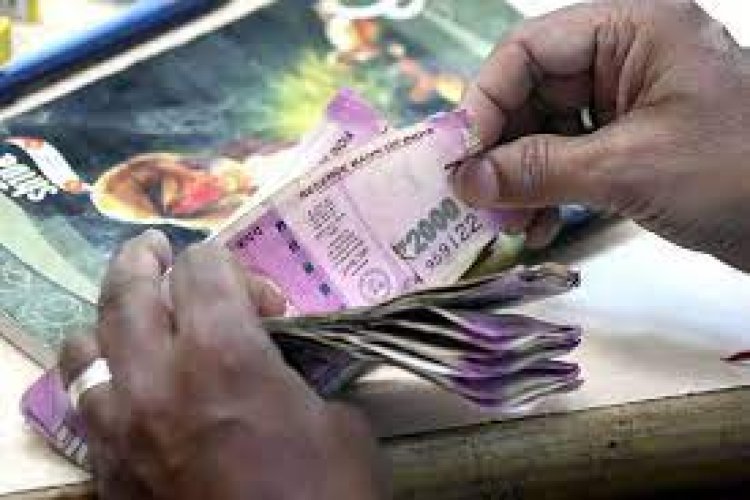Withdrawal of 2000 notes, how big will be the loss to the economy, know what will be the effect on the market
2000 Rupees Note: Taking an important decision, the Reserve Bank of India has decided to withdraw 2000 rupee notes. After this decision of RBI, now the question arises that the decision to withdraw the 2000 thousand note can cause a lot of damage to the economy of India.

The Reserve Bank of India (RBI) has taken the 2000 rupee note out of circulation. It has also been said by the RBI that there is absolutely no need for the common people to worry about this. This time's note ban is different from the 2016 note ban. This is not demonetization, only note replacement. The central bank issued a statement saying that the Rs 2,000 note currently in circulation will remain legal tender till September 30. Today i.e. from May 23, the process of changing the 2000 rupee note has started. However, people have to keep some things in mind, otherwise, notice can come from income tax. After this decision, the question now arises that how much damage can it cause to the Indian economy. Let's know what the experts say on this.
Economics professor Varun Singh told ABP news channel that this decision of RBI will increase the demand for expensive things like real estate and gold. Those who have 2000 notes will invest in jewelry and land. At the same time, apart from this, the demand for small notes has also started increasing. Last time in 2016 something similar was seen in demonetisation. It is believed that people will invest more and more money in things like real estate and gold and silver.
On this decision of RBI, Yuvika Singhal, an economist at Quantico Research, told Mint that this could affect small businesses like agriculture and construction. He said that even today in some places people use cash more than digital transactions. In such a situation, they may have to face trouble.
In a Reuters report, analysts and economists say that the central bank and the government have not yet given the exact reason for withdrawing the 2000 note from circulation. But it is a wise decision ahead of the upcoming Lok Sabha and Assembly elections. In these elections, the use of cash in general for wooing the public and campaigning may increase.
Rupa Rege Nitsure, group chief economist at L&T Finance Holdings, told Reuters that the RBI's decision was not a major one. He said that this is not going to affect the economy or monetary policy. Arguing this, he said that in the last few years, the trend of digital transactions and e-commerce has increased a lot in the country.
Various speculations are being made regarding the effect of the demonetization of Rs 2000 on the market. According to the research report of The Hindu newspaper, 2000 rupee notes worth about 3.7 lakh crore rupees are currently available in India. If one-third of its notes are deposited in banks, then the cash in the market will increase from Rs 40 thousand crore to Rs 1.1 lakh crore. The research report further states that many people have hoarded Rs 2000 notes to save tax on undisclosed income. All those people will now buy jewelry and invest in the real estate sector.
According to RBI, the printing of the Rs 2000 notes was stopped from the year 2019. The printing of this big note started after the demonetization in 2016. This note was issued by RBI under section 24(1) of the IBI Act. On the decision to discontinue the Rs 2,000 note, the RBI said that this decision was taken to meet the needs arising after demonetization. The central bank said that this objective was met after other notes came in sufficient quantity in the market. That's why the printing of two thousand rupee notes was stopped.










